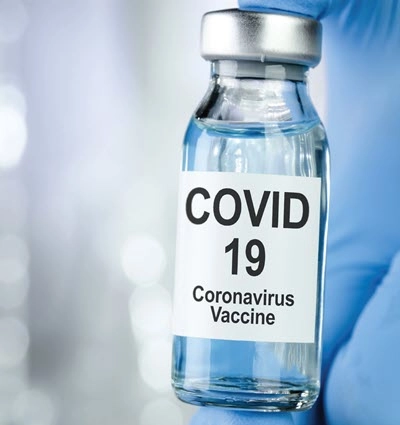Another Surge Approaches, but Vaccine Mandates Waiver
Make sure your organization stays on legal footing with vaccination mandates. Nursing homes and long-term care industry stakeholders have teetered on the question of COVID-19 vaccine mandates, trying to balance resident and staff safety against longstanding and increasingly exacerbated staffing woes. As the fight over vaccine mandates continues to play out politically and judicially, keep an eye on the news, to make sure you keep your facility as safe as possible while also remaining compliant. Make sure, too, that you stay abreast of your local regulations; some cities, like New York, have been able to enact and enforce mandates. As of publication, two of three federal mandates for COVID-19 vaccination of staff are back on — in most states. Trace the Whiplash Background: After the Occupational Health and Safety Administration and the Centers for Medicare & Medicaid Services issued vaccine mandate regulations Nov. 5, the rules underwent a series of legal challenges. The OSHA Emergency Temporary Standard (ETS) rule, which applies to employers with more than 100 employees, was blocked nationwide. So was the CMS rule at first, but then the Fifth Circuit Court of Appeals lifted the injunction for 25 states and the District of Columbia. Now the OSHA ETS rule is also on again. “OSHA is gratified the U.S. Court of Appeals for the Sixth Circuit dissolved the Fifth Circuit’s stay of the Vaccination and Testing Emergency Temporary Standard,” the federal agency says in a statement on its website. A Sixth Circuit three-judge panel lifted the Fifth Circuit’s stay of the ETS in a 2-1 order Dec. 17. However, deadlines for the requirement have changed. “To account for any uncertainty created by the stay, OSHA is exercising enforcement discretion with respect to the compliance dates of the ETS,” it says. “To provide employers with sufficient time to come into compliance, OSHA will not issue citations for noncompliance with any requirements of the ETS before January 10 and will not issue citations for noncompliance with the standard’s testing requirements before February 9, so long as an employer is exercising reasonable, good faith efforts to come into compliance with the standard.” Bonus: “OSHA will work closely with the regulated community to provide compliance assistance,” the agency adds. In other words, “OSHA won’t start fining employers until Jan. 10 and testing need not be in place until Feb. 9,” expects attorney Robert Markette Jr. with Hall Render in Indianapolis. Forthcoming OSHA guidance will be more specific about what is required on which date, however, Markette tells AAPC. “But the litigation drama continues,” note attorneys Brent Clark, James Curtis, A. Scott Hecker, Patrick Joyce, and Adam Young with Seyfarth Shaw in online analysis. “Shortly after the Sixth Circuit overturned the ETS stay, petitioners filed numerous emergency stay applications with the United States Supreme Court,” they note. On Wed., Dec. 22, “the U.S. Supreme Court fast-tracked challenges to two federal vaccine mandates, and said it would hear oral arguments on the OSHA vax-or-test mandate for large employers and the CMS vaccine mandate for healthcare workers on Friday January 7,” notes attorney Paige Hoster Good with McAfee & Taft in Oklahoma City. “Until January 7, all lower court rulings remain in effect,” Hoster Good points out in online legal analysis. Hearing the oral arguments at a special session is “an unusual and extraordinary action,” the Seyfarth attorneys observe. “The proceeding will place the Supreme Court in the middle of a simmering debate on the validity of vaccine mandates covering private employers, and the Court’s decision may foretell the final outcome and survival of two of the major private employer vaccine mandates,” they say. “While it is unknown whether the Supreme Court will be able to issue a ruling by OSHA’s January 10, 2022 compliance date, the Supreme Court’s expedited schedule seems to indicate that it is attempting to give employers some finality concerning their obligations under the federal mandates,” offers attorney Lilian Doan Davis with law firm Polsinelli. A ruling on the stays isn’t the final word, either. But “SCOTUS’s decision on the status of these stays should be telling for how the justices would ultimately decide these cases on the merits,” Hoster Good suggests. Set Sights on Jan. 27 Surveys Meanwhile, CMS has issued new survey guidance and Frequently Asked Questions setting new compliance dates for the Medicare vaccination requirements. For now, they will apply to the 25 states where the injunction doesn’t apply. The guidance comes “despite continuing disputes as to the legality and enforcement of the CMS’ vaccine mandate,” note attorneys Rachel Goodman, Kate Pamperin, and Larry Perlman with law firm Foley & Lardner. CMS’ “emergency regulation helps safeguard health care workers and the people they serve from COVID-19 and its variants ... by imposing requirements regarding vaccinations for eligible staff at health care facilities participating in the Medicare and Medicaid programs,” CMS noted in announcing the guidance on Wed., Dec. 29. New compliance deadlines specified in Dec. 28 guidance memo to state surveyors QSO-22-07-ALL are: Jan. 27: All staff must have their first dose of the COVID vaccine or have a pending or granted exemption request; related vaccination policies and procedures also must be developed and implemented. Feb. 28: All staff must have completed their vaccine series, i.e., second dose, or have a granted exemption request. Jan. 27 “is the date surveyors can begin to survey,” Markette stresses. “Agencies, outside of the states subject to the federal injunction, now know the deadlines for compliance.” Leeway: For the January deadline, “a facility that is above 80 percent and has a plan to achieve a 100 percent staff vaccination rate within 60 days would not be subject to additional enforcement action,” CMS tells surveyors. “Facilities that do not meet these parameters could be subject to additional enforcement actions depending on the severity of the deficiency and the type of facility (e.g., plans of correction, civil monetary penalties, denial of payment, termination, etc.).” For the February deadline, CMS bumps it up to above 90 percent with a plan to achieve a 100 percent staff vaccination within 30 days. “Within 90 days and thereafter following issuance of this memorandum, facilities failing to maintain compliance with the 100% standard may be subject to enforcement action,” CMS stresses in the memo. “Federal, state, Accreditation Organization, and CMS-contracted surveyors will begin surveying for compliance with these requirements as part of initial certification, standard recertification or reaccreditation, and complaint surveys 30 days following the issuance of this memorandum.” CMS Recognizes Holiday Hardships Technically, CMS wouldn’t have to give providers an extra 30 days to get in compliance with the vaccination mandate. But “CMS recognizes that it may be difficult to schedule vaccine administration appointments over the holidays, particularly in light of increased demand for booster doses and the possibility that facilities may also choose to provide post-administration sick leave to recipients,” the agency says in its newly updated Frequently Asked Questions about the mandate. “By delaying enforcement of Phase 1 until January 27, 2021, CMS expects that covered facilities will be better equipped to mitigate potential short-term workforce disruptions.” Plus: “CMS recognizes that facilities need time to restart and ramp up efforts to meet the requirements and that State Survey Agencies need time to restart and ramp up efforts to prepare to survey for compliance,” the FAQs say. “The preliminary injunctions delayed issuance of guidance and deprived stakeholders of the opportunity to communicate with CMS. The agency has no desire to disadvantage facilities that might have been reliant on the availability of such guidance.” But just because CMS has shown a bit of lenience doesn’t mean the agency isn’t serious about compliance. “CMS is ... working to implement the [interim final rule with comment period] as expeditiously as reasonable in light of the ongoing urgency for the IFC,” the agency stresses. Just keep in mind that compliance dates aren’t set in stone. The forthcoming Supreme Court activity “means you should expect more changes,” Markette cautions. “Based on the Supreme Court’s ruling, we could see a variety of potential outcomes, ranging from entirely enjoining the mandate in all states and territories to lifting the injunction for the remaining 25 states,” speculate Goodman, Pamperin, and Perlman. “Either way, CMS’ position is likely subject to some change within the coming weeks and employers should remain attentive.”


